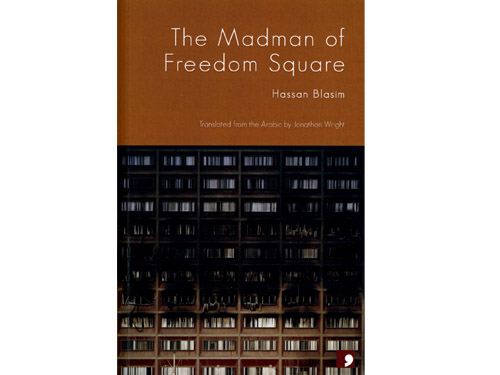Mahmoud Darwish wrote “In the Presence of Absence” near the end of his complex, rich, and engaged life. Palestine’s national poet published the book in 2006, when he imagined it might be his last long project. Indeed, the book is fueled by its author’s intimacy with death. Translator Sinan Antoon calls the book a “self-eulogy” in which “the living ‘I’ bids farewell to its imagined dying other in a sustained poetic address.”
The book may be a poetic address, but it is not traditional poetry. It is Darwish’s third and final book-length work of prose. The other two, “Journal of an Ordinary Grief” (1973) and “Memory for Forgetfulness” (1985), were also animated by the tension between storytelling and poetry.
But Darwish’s third prose work is built, even more than the others, on the tension of opposites: life and death, presence and absence, home and exile, poetry and prose. It insists on being neither story nor poem. The book’s prosaic elements sketch in a life lived, with its beginnings, middles, and a clear farewell. But the poetry collapses story-time, turning everything dense and luminous.
As with Darwish’s other prose works, there are moments of pure story. Darwish writes in “Presence” about childhood anecdotes, love, and his relationship to the Oslo Accords. He also writes movingly about death’s nightmarish attempts to snatch him. In the eighth chapter, he narrates a story to himself about a recent hospitalization:
“When you wake from your hallucination and calm down, you realize that you are at the hospital and ask: When will they operate? They tell you that it was done a week ago. You continue reading Gate of the Sun. The author visits you and you discuss some details with him with a lucid mind. At the end of the visit you whisper to him: Soon, when the guards are distracted, take me with you! Get me out of this prison! You do not understand why his eyes well up. As soon as he bids you farewell, you fall again to the bottom of the abandoned well and scream: Get me out of here! The guards beat you up until you lose consciousness.”
But, although there are miniature stories nestled within each of the chapters, the architecture is not of a single life narrative. The book always prefers the individual moment to any sustained whole. Instead of representing a single life arc, it presents many sometimes-contradictory stories, poems, and fragments of text.
The book must have provided an exceptional challenge to its translators. Last December, Mohamed Shaheen’s translation, “Absent Presence,” was published by Hesperus Press. At times, the weight of Shaheen’s sentences makes the prose difficult to enjoy. In places where the rhythm should carry us along, we are sometimes left to drag ourselves along. Without rhythm, Darwish’s words become loose and meaningless. After all, as Darwish writes, poetic structures are “formed by the movement of meaning through rhythm.”
In a beautiful passage about death and Beirut, Shaheen’s translates: “…it rises and falls, as the emptiness of the sky echoes the howl of steel. It is as if you were hearing the dripping of water from a tap that had not been firmly turned off; or as if you were listening to steps approaching the door but never arriving.”
Antoon’s translation puts a greater emphasis on re-creating rhythm: “It rises and falls, an echo of an echo of a sky stripped of the howling of steel. As if hearing water dripping from a leaky tap. Or listening to footsteps approaching the door, but never arriving.”
The book never forgets the author’s connection to real and imaginary Palestines. It is full of descriptions of Gaza and Deir Yassin and Sabra and Shatila. But it also has many personal moments, when Darwish faces his mortality. In Chapter 11, he recounts a meeting with a sculptor-friend:
“Why are you against the statue? You say: Because I want to keep moving, to reach out and shoo flies away from my face, to stick my tongue out, to put my feet down in the street. He says: Trust me, I will make movement visible. You say: And I don’t want anyone to break me. I am the one who does that. A statue is incapable of self-criticism. He says: Then you are a donkey. You say: Just like this immortality of yours. You part amicably.”
Throughout the book, there is a continual interplay of the real and the statue, memory and forgetfulness, sleep and waking, airports, ghosts and ghost limbs, and the act of writing itself.
At the very end of the book, the stars “gaze down at us from a distant death that has yet to reach us.” The effect of the second person conflates Darwish and the reader, making this not just the story of his life, but of ours. And, thanks to the reader’s participation, the light from this book continues to be emitted. It is a farewell, but one that doesn’t end.



